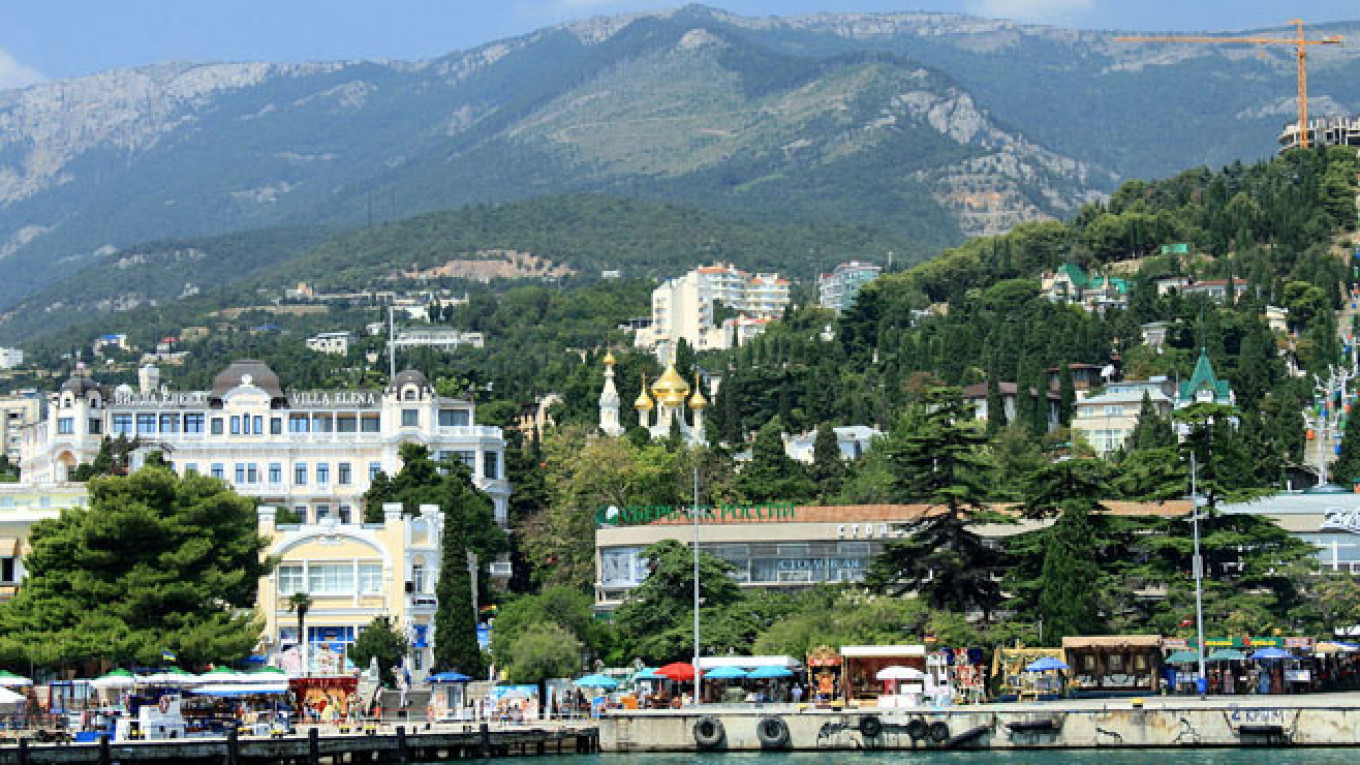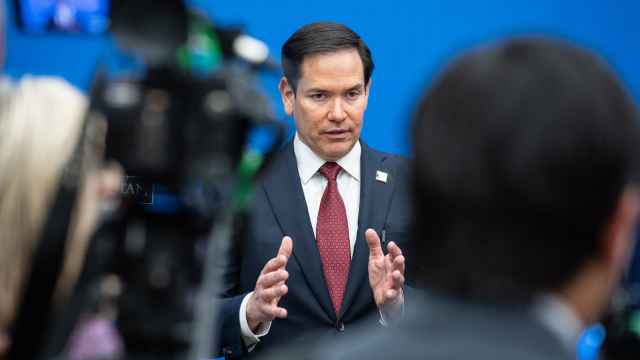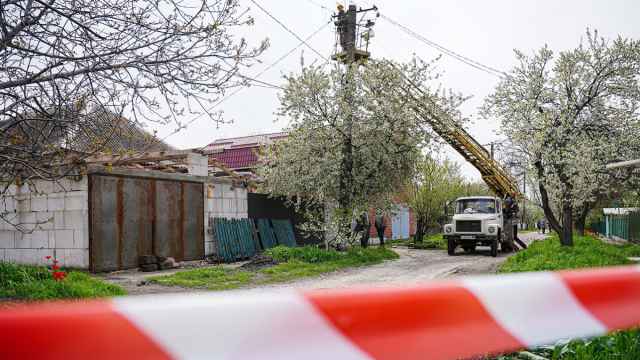Speaking in Yalta on Thursday, President Vladimir Putin emphasized the importance of modernizing Crimea and Sevastopol.
Toward that end, the Crimean Peninsula will soon reap the benefits of a multi-billion dollar development plan approved by the government this week, an initiative that has been widely embraced despite the fact that it comes at the cost of other regional development projects.
Enormous Investment
The development plan stipulates the allocation of 658 billion rubles ($18 billion) for the peninsula's modernization. The investment will fund an array of projects: road repair, expanded transportation networks, support for the tourism industry and the construction of a bridge spanning the Kerch Strait, connecting Russia's newest federal subjects to the mainland.
The Russian government also announced Wednesday that 5 billion rubles ($139 million) had been earmarked for a new federal university in Crimea, in addition to the already sizable investment package.
In an address to State Duma deputies Thursday, Putin vowed that Crimea expenditures were for the greater good.
"Many claim that Crimea is expensive," Putin said. "But this [spending] is being done not only for the residents of Crimea, but for the whole of the Russian population."
Natalya Zubarevich of Moscow's Independent Institute for Social Policy compared federal investment in Crimea to spending on the Sochi Olympic Games, which cost Russia $51 billion.
Spending on Other Regions
Meanwhile, most other Russian regions can expect considerably less federal money. Development plans for the Far East — a region accounting for nearly 40 percent of Russia's territory, and which houses more than 5 percent of its population — adds up to only one third of that set aside for Crimea.
Funds designated for Crimea likewise exceed those set aside for the development of the Kaliningrad region 7.2 times, despite the fact that the latter is in dire need of industrial modernization.
Ingushetia, an impoverished, restive region in the North Caucasus, will receive nearly 23 times less government funding than Crimea over the next four years.
"A lot of money is being spent to Crimea," Zubarevich said. "But the difference between Crimea and other regions is that the money going to Crimea was not earned by the region. This is basically a large money transfer. It is not fatal for the Russian economy, but it is still quite a large sum."
For Dmitry Zhuravlyov, director of the Center for Regional Problems, the funds dedicated to Crimea do not indicate favoritism on Russia's part for its new subjects, the annexation of which sparked a wave of patriotism that have helped propel Putin's approval rating to an all-time high of 87 percent.
"The Crimea show is over," Zhuravlyov told The Moscow Times on Thursday. "The money being invested is actually necessary, and not simply demonstrative of Russia's care for its new regions. Now that Russia has Crimea, it needs to modernize it and make it profitable."
Losing Regions, Little Objection
Some of Russia's regions have suffered setbacks from federal spending on Crimea, with promised investments on infrastructure projects having been postponed or suspended.
Russia's Transportation Minister Maxim Sokolov said in August 2013 that a cargo port would be built in city of Taman in the Krasnodar Region — located a mere 25 kilometers across the Kerch Strait from Crimea — would be made operational by 2019.
But after Russia annexed Crimea and asserted control over its ports, the Taman project was put on hold, given the futility of building it in the vicinity of Crimea's developed marine transportation infrastructure.
Russian presidential aide Andrei Belousov suggested in April postponing the construction of a bridge over the Lena River in the republic of Sakha in favor of allocating the funds toward the development of Crimea and Sevastopol.
In July, Vedomosti reported some 44 billion rubles ($1.2 billion) that had been destined for the construction and restoration of a highway between Yakutsk and the town of Never — a road spanning more than 1,200 kilometers — may be diverted to Crimea.
But regional elites and local populations have remained quiet. Complaints of federal spending inequities have been mild at best.
"Cutting the funding on the Lena River project would be like cutting the wing of a bird and telling it to fly," Mikhail Nikolayev, a State Duma deputy and former president of the republic of Sakha, said in quotes carried by the NCN News Agency in May. "The country has enough funds and resources. To try to cut in one place to patch up another is unacceptable for the country. I think the government and the president perfectly understands [that Siberia and the Far East are Russia's future] and will not cut funds destined to their development."
Nikolayev's criticism, which steered clear of questioning the financial imperatives of Russia's annexation of Crimea, is a rare example of an official having publicly questioned the central government's management of spending.
Voicing discontent could jeopardize their political survival, Zubarevich said. "No one will say a word because support for Crimea is a sign of loyalty to the central government. And regional authorities very much need the Kremlin's support."
See also:
Russia May Create Sanction-Proof Airline to Service Crimea
Contact the author at g.tetraultfarber@imedia.ru
A Message from The Moscow Times:
Dear readers,
We are facing unprecedented challenges. Russia's Prosecutor General's Office has designated The Moscow Times as an "undesirable" organization, criminalizing our work and putting our staff at risk of prosecution. This follows our earlier unjust labeling as a "foreign agent."
These actions are direct attempts to silence independent journalism in Russia. The authorities claim our work "discredits the decisions of the Russian leadership." We see things differently: we strive to provide accurate, unbiased reporting on Russia.
We, the journalists of The Moscow Times, refuse to be silenced. But to continue our work, we need your help.
Your support, no matter how small, makes a world of difference. If you can, please support us monthly starting from just $2. It's quick to set up, and every contribution makes a significant impact.
By supporting The Moscow Times, you're defending open, independent journalism in the face of repression. Thank you for standing with us.
Remind me later.






